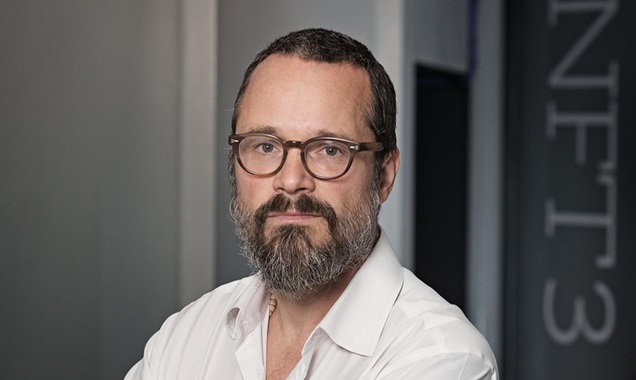The cork pops and the water of life generously fills many large tumblers played by an enthusiastic professional orchestra. This short whiskey commercial is a fascinating display of musical and cinematic skill long enough to unforgettably entertain the audience and infuse it with energy bursting from the commercial’s London-based director Jorn Threlfall.
Threlfall’s enthusiasm is equally boundless on the phone as he explains that cinema combines all of his major interests: art, literature, performance and theatre. For him cinema is the most dynamic form of expression with a powerful unrivalled quality. Harnessing this has enabled him to become a successful director and producer.
Threlfall’s commercials and works for Britain’s Channel 4 and America’s Discovery Channel, structured as stories and presented from the viewers’ perspective, convey a distinctly human touch. Each story encourages the viewers to intellectually engage with issues pertinent to modern society. By using humour, language, familial imagery and showing people comfortable in their surroundings, Threlfall’s stories create unity among the viewers’, inspire their trust and enable them to easily relate to each story.
Threlfall’s most recent short film “Over”, presented at this year’s London Film Festival builds on this. Inexpensively shot in a leafy North London cul-de-sac with help from his family and friends, “Over” is a master class in modern storytelling that shocks the viewers to the core.
Rhythmically punctuated by time signatures, the film begins by showing a small bouquet of flowers in the evening and progresses backwards in time over the course of a day. The observant camera is static but moves around the cul-de-sac during the day slowly revealing why the bouquet is there.
The film’s unconventional structure and even pace make it unique. Unlike other directors that use close-up shots to focus viewers’ attention on details, the constantly wide camera angles in “Over” encourage the viewers to scrutinize the cul-de-sac. The film confounds the viewers by giving them clues about what did or can happen in the street, and profoundly shocks them at the end.
Through this “clinical distance” Threlfall shows British people ill at ease with each other, taking their affluence for granted and refusing to notice those who risk their lives to come to Britain. Astutely relying on limited, muted dialogue as the people in the cul-de-sac realise the need to talk to each other, “Over” presents society as one big family and stresses the urgent call for it to again become a community based on trust that would make the world a better place.
Lasting only fifteen minutes, the film is a visually arresting wakeup call that “smacks” the viewers “on the head” forcing them to rethink their approach to life and others around them. By his own admission, “distilling” this story back to basics was one of Threlfall’s biggest challenges in making “Over” but it reinforces the film’s poignant message well after its end. Less is definitely more.











No Comment